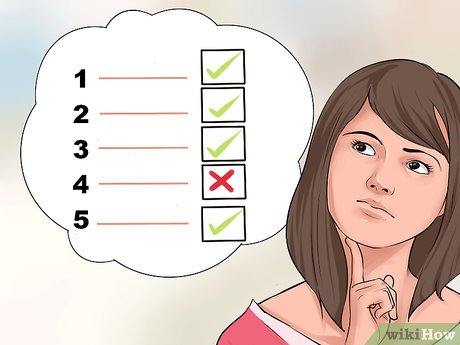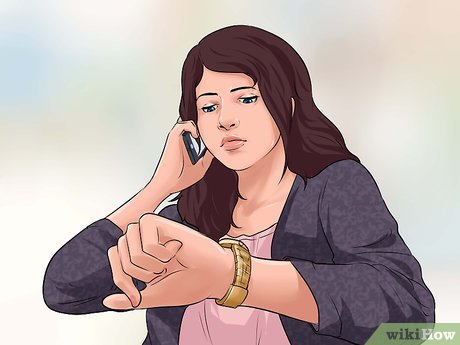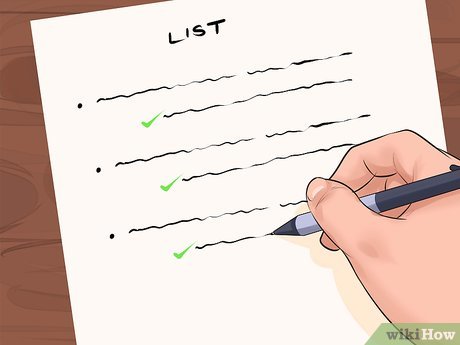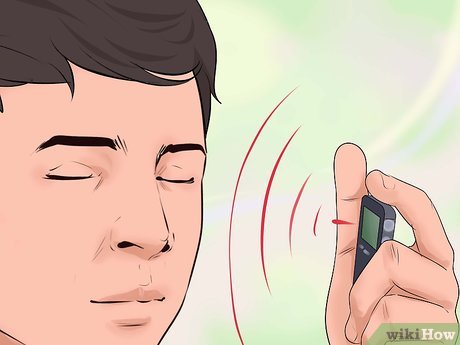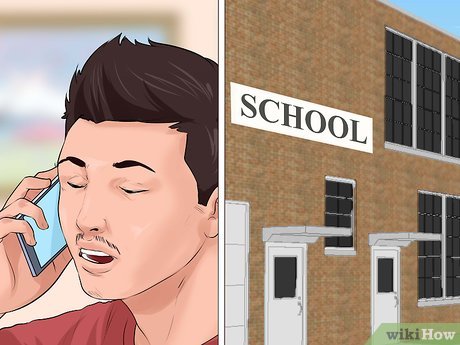How to Communicate with a Child's Middle School Teacher
Part 1 of 3:
Reaching an Understanding
-
 Ask yourself why you need to see the teacher. Is your student not doing their homework? Maybe he or she is cheating on their schoolwork? Decide the reason for the talk. Once you have a basic idea of why you need to see your child's teacher, you need to ask yourself these questions:
Ask yourself why you need to see the teacher. Is your student not doing their homework? Maybe he or she is cheating on their schoolwork? Decide the reason for the talk. Once you have a basic idea of why you need to see your child's teacher, you need to ask yourself these questions:- Have I met with my child's middle school teacher before? When and why did this meeting occur?
- Do the reasons I came up with earlier really elicit a meeting with a teacher? Can my family try to handle this matter?
- What's my child's teacher like?
-
 If you consider the meeting is still needed, canvass the following:
If you consider the meeting is still needed, canvass the following:- Will talking with my child's teacher embarrass my child or make them feel insecure?
- Should I tell my child that I'm going to have a talk with his or her teacher(s)?
-
 Think about how your child would react to you telling them. Sometimes it's better if they don't know, as it might upset them or discourage them. If you do plan on telling your child about the meeting, make sure that they know that you aren't mad at them and that you are just trying to help.
Think about how your child would react to you telling them. Sometimes it's better if they don't know, as it might upset them or discourage them. If you do plan on telling your child about the meeting, make sure that they know that you aren't mad at them and that you are just trying to help.
Part 2 of 3:
Establishing Communication With Your Child's Teacher(s)
-
 Establish communication with your child's teacher. This should not be too hard. Start off by doing the following:
Establish communication with your child's teacher. This should not be too hard. Start off by doing the following:- Contact the school guidance counselor, principal, or the teacher directly. This can usually be done by email or the school phone number.
- Make sure you know how many teachers you plan on keeping in touch with. Sometimes in middle school, students have a whole team of teachers. It depends on how many you plan to meet with. If you plan on meeting with more than one, you might want to contact the person in charge of the team of teachers. (Most likely a teacher is the leader of a team.)
- Send a note along. If you did tell your son or daughter about it and they seem to be okay with it, you might consider writing a note for your child to give to the teacher requesting some form of conference.
-
 Choose a mutually convenient time to meet. Once you have contacted someone at the school and have talked with whoever you plan on meeting with, set a date. Keep in mind that teachers are as busy as you and might not be able to meet with you right away.
Choose a mutually convenient time to meet. Once you have contacted someone at the school and have talked with whoever you plan on meeting with, set a date. Keep in mind that teachers are as busy as you and might not be able to meet with you right away. -
 Share your concerns with your spouse. When the date has been decided upon, you and your spouse should try to think about some concerns you would like to share with your child's teacher. Maybe even write them down so you don't forget. Be sure not to waste time. Be ready!
Share your concerns with your spouse. When the date has been decided upon, you and your spouse should try to think about some concerns you would like to share with your child's teacher. Maybe even write them down so you don't forget. Be sure not to waste time. Be ready!
Part 3 of 3:
The Meeting
-
 Have some idea of what you're going to be talking about with the teacher by now. If you don't here are some ideas:
Have some idea of what you're going to be talking about with the teacher by now. If you don't here are some ideas:- How is my child doing in your subject?
- Is my child participating in class?
- Is my child kind to the other children?
- Is my child ever late to his or her classes?
- What are your teaching methods? Do you use technology or paper and pencil?
-
 Be prepared to listen as well as talk. When you meet with your child's teacher(s), they are probably going to have some idea as to what they might want to talk about as well. Keep that in mind. Remember that this meeting isn't all about bad, your child's teachers will most likely have some lovely things to say about your child.
Be prepared to listen as well as talk. When you meet with your child's teacher(s), they are probably going to have some idea as to what they might want to talk about as well. Keep that in mind. Remember that this meeting isn't all about bad, your child's teachers will most likely have some lovely things to say about your child. -
 Stay in touch for follow-ups. After the meeting is over, you might want to consider getting the teacher's email(s) so you can keep in touch with them easier if your child seems to be having some larger problems in class.
Stay in touch for follow-ups. After the meeting is over, you might want to consider getting the teacher's email(s) so you can keep in touch with them easier if your child seems to be having some larger problems in class.
Share by
Isabella Humphrey
Update 24 March 2020

